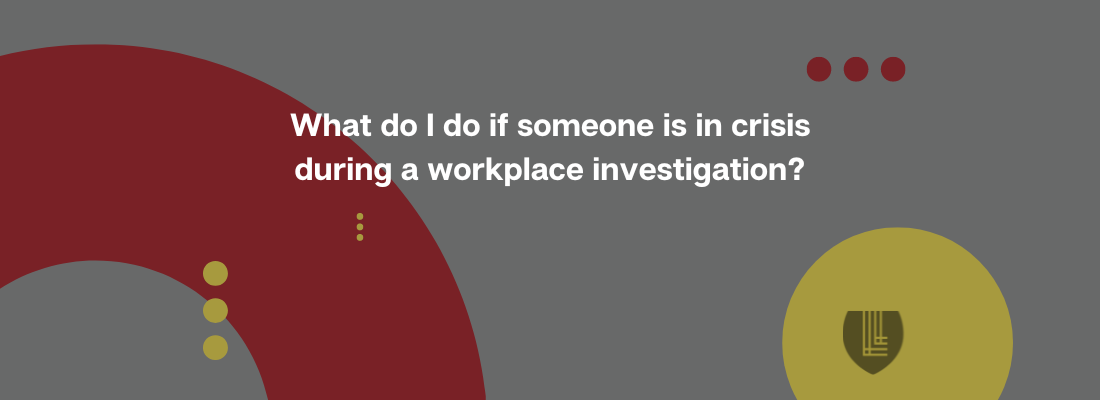I think the biggest thing you do is to stay in your lane.
Many investigations are done by people with mental health backgrounds. And if they have a slightly different lane than I do as an attorney, that seems appropriate. But at the end of the day, I’m also human, and I have that lane as well.
When it’s clear that someone’s in crisis, such as a rape investigation, I can offer an organization that’s equipped to help somebody or an Employee Assistance Program hotline through the employer.
What I can’t do is fix their problem. I can’t pretend to fix their problem. And I can’t let them go down a path of acting like I can fix the problem.
I can say things like, “I don’t know anything about where you are in dealing with this. I need to know this for my investigation, and I need to be respectful of your processing. So I need to get as much as I can from you today. And I can be patient, but I probably need to get as much as I can. And I hope you’ll call this organization afterward. Is there anybody else you’d like me to call for you?”
And that’s really about as therapeutic as I can get, because I don’t have a mental health background at all. I also don’t want to be assuming people are in crisis when they’re not.
Some of it is just being human, we know when someone is in crisis. But I don’t want to project or assume somebody should be in crisis because that’s not my lane. I don’t have that training, and I need to stay in my role as an attorney and an investigator and do no more than offer resources.

